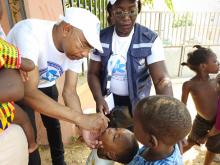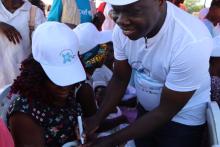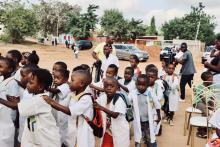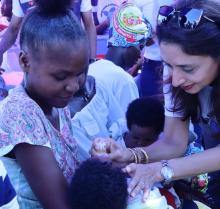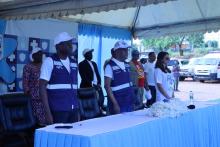Angola aims to vaccinate over 5 million children to ensure a polio-free nation.
As a result of the commendable work of the Ministry of Health and partners in strengthening immunisation, Angola has been free of wild poliovirus since July 2011 and declared the interruption of polio transmission in November 2015. This milestone demonstrates the government's continued commitment to public health and represents hope for a future free of vaccine-preventable diseases.
The national campaign against polio, which runs until Sunday, will use a door-to-door strategy and fixed and mobile posts and aim to vaccinate more than 5.5 million children under the age of five across the country.
Unfortunately, this year, Angola saw a concerning development. Four cases of Poliovirus Type 2 have been detected in environmental samples of sewage water collected in the Luanda, Huambo, and Lunda Norte provinces. Additionally, two cases of Acute Flaccid Paralysis (AFP) have been reported in the province of Lunda Norte, in the municipality of Chitato. This situation is not just a concern; it's a call to action. It underscores the urgency of the national polio vaccination campaign and the danger of continued poliovirus transmission among children.
'Vaccinating our children is not just a public health measure but, more than that, it is a commitment to the progress and prosperity of our country,' said the Secretary of State for Public Health, Dr Carlos Alberto Pinto de Sousa, during the official launch ceremony of the polio campaign, held in Luanda. “This is a crucial step in maintaining our polio-free status and ensuring the health and future of our children.”
The World Health Organization (WHO), UNICEF, and other UN agencies are integral team members, collaborating closely with the Angolan government to ensure all children are protected. “Together, we are committed to the decisive challenge of vaccinating all children and eradicating polio worldwide”, said UN Resident Coordinator Zahira Virani during the ceremony, reiterating the unwavering support of the UN agencies in ensuring vaccination coverage for all children, leaving no child behind.
“We must do our part by informing our families, friends, colleagues, and neighbours about the vaccination campaign. Let's maintain Angola's status as a polio-free country!”
Polio, also known as polio or infantile paralysis, is an acute infectious-contagious disease transmitted by direct contact with faeces. Vaccination is the primary tool for preventing the spread of the poliovirus and protecting children.

